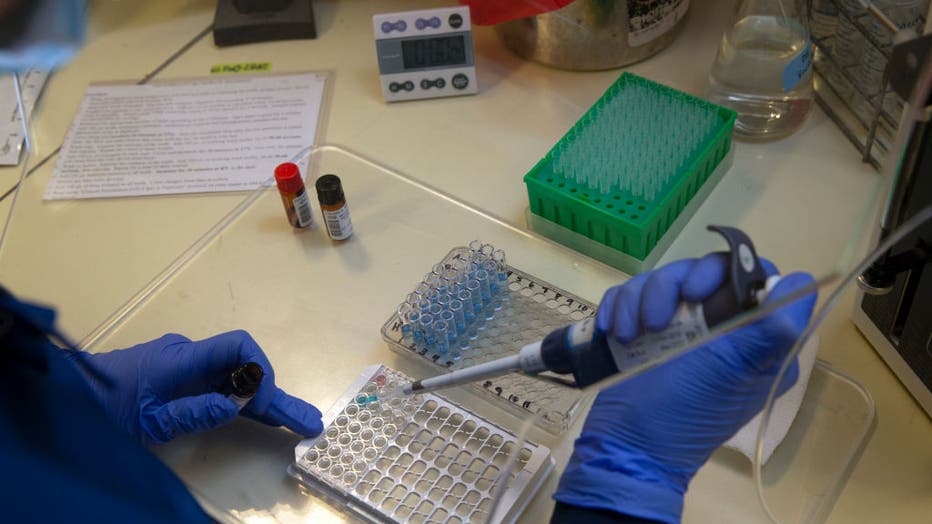NIH researchers find genetic link in patients with severe COVID-19
LOS ANGELES - Scientists at the National Institutes of Health (NIH) say they have found how genetics play a critical role in who develops severe cases of COVID-19 and why more men than women die from the illness.
Much is still being learned about the novel coronavirus that has claimed the lives of more than 200,000 people in the U.S. Nearly 1 million deaths have been recorded worldwide to date, according to data tracked by Johns Hopkins University.
Researchers have rushed to study the unpredictable and wide variations in illness severity that the virus causes in different people. Determining whether a genetic factor contributes to the virus severity and health outcomes of COVID-19 patients is highly important for researchers to develop a solution to the crisis.
Results published as part of the COVID Human Genetic Effort, an international project consisting of more than 50 genetic sequencing hubs and hundreds of hospitals, found that more than 10% of people who develop a severe case of the coronavirus have misguided antibodies which attack the immune system.

FILE - A medical laboratory scientist runs a clinical test in the Immunology lab at UW Medicine looking for antibodies against SARS-CoV-2. (Photo by Karen Ducey/Getty Images)
Researchers found that another 3.5% of people who develop severe COVID-19 carry a specific genetic mutation which negatively impacts immunity from the disease.
“Consequently, both groups lack effective immune responses that depend on type I interferon, a set of 17 proteins crucial for protecting cells and the body from viruses," according to a news release by the NIH.
“The researchers discovered that among nearly 660 people with severe COVID-19, a significant number carried rare genetic variants in 13 genes known to be critical in the body’s defense against influenza virus, and more than 3.5% were completely missing a functioning gene,” the NIH wrote.
The health agency said the absence of these proteins appear to be common among a subgroup of people who are at risk of life-threatening effects of COVID-19.
After examining 1,000 patients with life-threatening pneumonia caused by the coronavirus, researchers found that 10% of patients had the misguided antibodies, otherwise known as “autoantibodies,” which defended against the interferon proteins needed to protect the cells. Of those patients with harmful antibodies, 95% were men.
RELATED: Could your symptoms be COVID-19? The signs range from mild to severe
Health officials say that becoming infected with COVID-19 can lead to a wide variety of symptoms, ranging from mild to severe. The most common symptoms are fever, a dry cough, shortness of breath and fatigue.
But as the months-old virus continues its spread, additional symptoms are being identified — and they can be unpredictable.
The U.S. Centers for Disease Control and Prevention highlights 11 key symptoms of COVID-19 on its website:
Fever or chills
Cough
Shortness of breath or difficulty breathing
Fatigue
Muscle or body aches
Headache
New loss of taste or smell
Sore throat
Congestion or runny nose
Nausea or vomiting
Diarrhea
The agency notes that the list does not include all possible symptoms of COVID-19, and said that it would continue to update the list as more becomes known about the virus.
Kelly Taylor Hayes contributed to this story.


